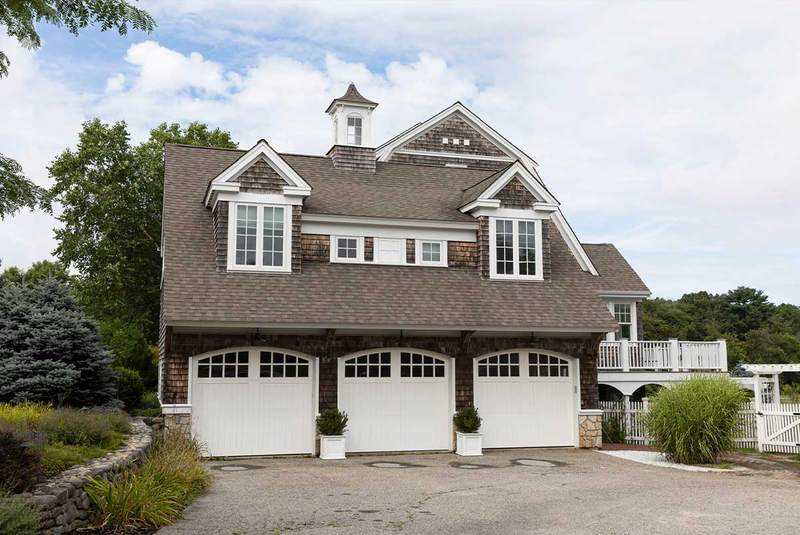Credit cards come in handy for a variety of purchases, and it’s nice to rack up cash back or rewards on the items you buy. But while it may make your life easier to put every expense of yours on a credit card, using one to pay your mortgage may not be feasible.
For the most part, mortgage lenders do not accept payments by credit card. And even if you can find a workaround, it may not make financial sense to make a mortgage payment with a credit card.
Key Takeaways:
- Lenders typically don’t let you pay your mortgage with a credit card because of the fees and risks involved.
- Some workarounds may allow you to pay your mortgage with a credit card.
- If you’re using a credit card to pay your mortgage because you can’t afford your payments, it’s time to reach out to your lender and discuss your options.
Can I Pay A Mortgage With A Credit Card?
Most lenders won’t let you make a mortgage payment with a credit card for two reasons. First, there can be processing fees associated with credit card transactions that your mortgage lender probably does not want to bear.
Second, when you pay your mortgage with a credit card, you’re essentially transferring debt from one source to another. That’s a risky thing.
A mortgage is a debt, and a credit card balance is a debt. When you pay your mortgage each month, you’re ideally supposed to be reducing your debt. But if you keep using a credit card to pay your mortgage because you don’t have the money available, you could end up defaulting on your mortgage, which is exactly what your lender doesn’t want.
What’s Your Goal?
Buy A Home
Discover mortgage options that fit your unique financial needs.

Refinance
Refinance your mortgage to have more money for what matters.
Tap Into Equity
Use your home’s equity and unlock cash to achieve your goals.
Are There Workarounds That Let You Pay A Mortgage With A Credit Card?
You may not be able to pay a mortgage payment with a credit card directly. However, there are third-party processors like Plastiq that allow you to use a credit card to pay your mortgage.
That said, using a third-party service could mean incurring a fee. Plastiq’s fee for credit card payments is 2.9%. And remember, because your mortgage payment is probably a large sum of money, that fee can add to your cost significantly. A 2.9% fee on a $1,500 mortgage payment, for example, has you paying an extra $43.50 per month.
Another potential workaround for making a mortgage payment with a credit card is to use a credit card for a cash advance. You can then deposit that cash advance into your checking account and use it to pay your mortgage lender directly.
However, it’s common for credit cards to charge a fee for a cash advance. And generally, you’ll start accruing interest on one immediately.
Ready To Become A Homeowner?
Get matched with a lender that can help you find the right mortgage.
Are There Benefits To Paying Your Mortgage With A Credit Card?
While there may be a few perceived benefits of paying a mortgage with a credit card, the drawbacks of doing so could outweigh the perks.
One benefit of making a mortgage payment with a credit card is earning rewards or cash back. But if you’re charged a fee by a third-party processor that’s higher than your cash back or reward rate, you negate that benefit.
Additionally, it’s common for credit cards to have welcome offers that could put a lump sum of cash in your pocket for meeting a certain spending threshold. In this case, the amount of cash back or rewards you score could potentially outweigh a third-party fee you’re charged. But if you don’t pay off your credit card immediately, you risk accruing lots of interest, since credit card interest rates tend to be much higher than mortgage rates.
Finally, if you need a little leeway in making your mortgage payment, charging it on a credit card could help you avoid a late fee. However, once again, you run the risk that if you don’t pay off your credit card bill on time and in full, the amount of interest you rack up on your balance could exceed the late fee you’re saving yourself.
Besides, it’s pretty common for mortgages to come with a grace period of roughly 15 days, where you can make your payment past its due date without getting slapped with a fee. Check your loan documents to see what grace period you’re entitled to. You also never know whether your lender might agree to extend your grace period as a one-time courtesy, so it pays to call and ask.
Take The First Step To Buying A Home
Find a lender that will work with your unique financial situation.
What Are The Risks Of Paying Your Mortgage With A Credit Card?
You may like the idea of being able to pay a mortgage payment with a credit card. But you should know that there are some risks involved.
- Possibility of rejected payments: Even if you use a reputable third-party processor, you never know when your payment may not go through as expected, resulting in late fees. If you end up working with a third party, make sure it’s one that accepts the credit card you’re planning to use.
- Expensive fees: If you’re paying close to 3% in fees to use your credit card to pay your mortgage, you risk losing out financially.
- Loads of interest: If you pay a mortgage payment with a credit card and can’t pay your balance in full, you could rack up loads of interest.
- Credit score damage: Making a payment as large as your mortgage on a credit card could drastically drive up your credit utilization ratio, which represents how much revolving credit you’re using at once. It’s generally recommended to keep credit card balances under 30% of your overall limit at any given time. Going above that could cause a credit score drop, making it harder to qualify to borrow affordably the next time you need to.
What Should I Do If I Can’t Make My Mortgage Payment Without A Credit Card?
It’s one thing if you want to pay a mortgage payment with a credit card to get points, cash back or a welcome bonus. It’s another thing to use your credit card to pay your mortgage because you don’t have the cash on hand.
If that’s the case, using your credit card to pay your mortgage probably isn’t going to solve the issue. The only thing it’s likely to do is cause you to rack up expensive interest that drives you deeper into debt.
If you’re having cash flow problems, contact your mortgage lender and see what options you have. You may be able to put your mortgage into forbearance for a period of time if you’re experiencing some type of financial hardship, like job loss or an illness. Forbearance lets you pause mortgage payments without being reported to the credit bureaus as late or delinquent.
Your mortgage lender may also be open to letting you modify the terms of your loan to make your payments more affordable. With loan modification, you don’t apply for a new mortgage like you do when you refinance. Rather, you keep your existing mortgage and work with your lender to change the terms. Your lender may, for example, extend your mortgage repayment period from 30 years to 40 years so that you’re able to lower your monthly payments.
FAQ About Paying A Mortgage With A Credit Card
Here are some questions you might have if you’re thinking of paying your mortgage with a credit card.
The Bottom Line: Think Long And Hard Before Paying A Mortgage With A Credit Card
Usually, mortgage companies don’t let you make your payment with a credit card directly, since rolling existing mortgage debt into a high-interest credit card may introduce financial liability for both the lender and the borrower. Plus, your lender isn’t going to want to bear the cost of processing fees.
Clearly, there are ways to get around this, but the risks and drawbacks are likely to outweigh the benefits. If you’re having trouble keeping up with your mortgage payments, contact your lender immediately to discuss your options. There may be solutions that don’t make your financial situation even worse.

Maurie Backman
Maurie Backman has more than a decade of experience covering personal finance topics that include mortgages, loans, retirement, Social Security, and investing. Prior to becoming a full-time writer, she worked in the financial industry as well as in product design and marketing. Maurie holds a bachelor's degree from Binghamton University, where she studied creative writing and finance. She was happy to combine her two areas of study into a career that allows her to educate consumers on a host of financial topics.












